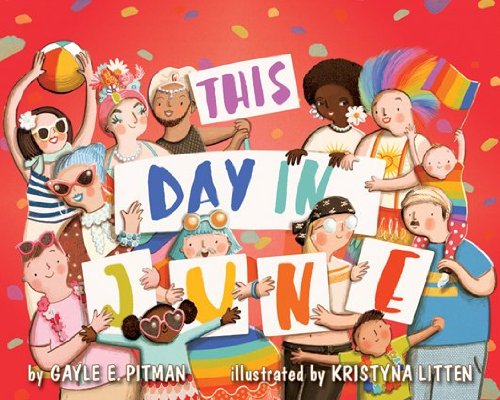Here is Laurie Higgins writing at the Illinois Family Institute:
Never poke a sleeping bear or the ideology of “tolerant” librarians. IFI’s recent article by John Biver about a controversy brewing in West Chicago over a picture book for young children that positively portrays the “pride” parades that pollute city streets throughout the country every June has unleashed the fury of freedom-lovin’ librarians across the nation.
Here’s what lesbian Gayle E. Pitman, author of This Day in June and professor of gender studies and psychology at Sacramento City College, said when asked what her book is “REALLY about”:
I LOVE this question! This Day in June is really about being who you are, and not apologizing for it. When I wrote this story, I wanted Pride to be featured as realistically as possible. I wanted to see drag queens, guys in leather, rainbows, political signs, the Dykes on Bikes—everything you would see at Pride. I didn’t want any of it to be watered-down or sugarcoated. Lots of people have asked me, “Do you think that’s appropriate for children?” And my answer always is—YES. There’s something very powerful about allowing something to be portrayed authentically, because it teaches children in an indirect way to be as authentic as they can. It’s also important to recognize that children respond to Pride very differently than adults do. When adults see people wearing leather, they make certain associations to that. Children see people wearing leather and think they’re just wearing a costume, or playing dress-up. What I love most about This Day in June is that the illustrations are age-appropriate AND authentic at the same time.
Pitman’s picture book also depicts the Sisters of Perpetual Indulgence, the Catholic-hating drag queens who call themselves “queer nuns.” They include “Sister Anni Coque l’Doo, “Sister Guard N O’Pansies”, and “Sister Hera Sees Candy.”
What precisely is “authenticity” to Pitman and “progressive” librarians? Is “authenticity” acting on all powerful, persistent, unchosen desires? If so, is a society in which everyone is “authentic” a society conducive to moral order and human flourishing? And if a parade that features dykes on bikes, drag queens, and guys in leather is “age-appropriate,” what isn’t? What criteria do “progressives” in libraries and public schools use to determine age-appropriateness?Read more: IllinoisFamily.org

